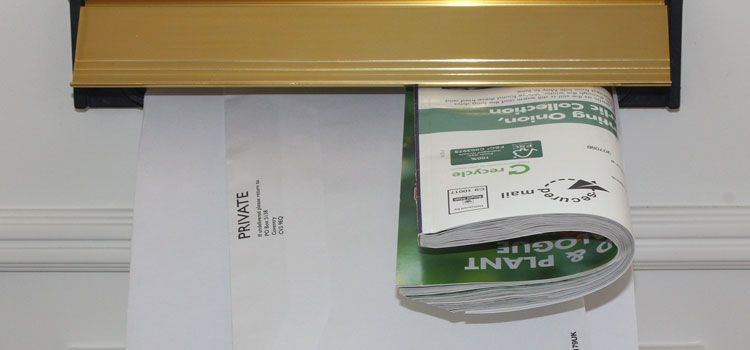Simon McLaven, CEO of The Ark
This year we have seen the shocking death toll from Coronavirus and are still witnessing its devastating effect on much of the UK economy. Everyone has been, and continues to be, affected by the pandemic.
As we work towards the new normal, I have spoken to numerous marketing practitioners many of whom are facing a similar challenge – the need to increase direct mail activity in order to recover revenue lost during the last six months and more significantly, remain sensitive to the mood of the country.
In the planning of a direct mail campaign, it’s important to know that mailing deceased individuals can not only lead to a costly GDPR breach; but is also one of the most frequent complaints received by the Information Commissioner.
No one wants to cause distress through their marketing activities, particularly while the whole country is feeling vulnerable. Mailing deceased records can also damage your brand reputation and, right now, you really need to be building strong relationships.
Today more than ever, it’s critical to make sure that mailing files contain as few deceased records as possible, preferably none. The question I frequently hear is – can I do more to stop mail arriving with a recently bereaved relative?
Unless you are already using The Ark for deceased suppressions, the answer is almost certainly – Yes, you can do more. Here are 4 things to think about when planning your data suppression:
1. Ensure your suppression strategy has comprehensive coverage
You may well work for one of the many companies who license just one deceased suppression file. If so, you could unknowingly be putting your brands at risk. A single source of deceased data rarely provides the complete coverage that you need and the differences between deceased suppression files can be significant.
Evaluations of The National Deceased Register – exclusive to The Ark – shows that more than 30% of its data, about a third of deceased individuals, do not appear in other deceased suppression file. If you’re not using The National Deceased Register, you could be at risk of mailing a significant number of deceased individuals in your database.
2. Remain in control of key decisions about your data when outsourcing
Even if you’re outsourcing to a good data processing bureau, keep in touch with them regularly to make sure you fully understand which deceased suppression files are being used for your mailing. It is vital to stay in control of what happens to your data. The data controller is obliged to protect personal data against loss or compromise and have clear, legally ratified, agreements in place with the processor so that the processor can only act on the instructions of the controller. Clearly, abdicating responsibility for data screening or being unaware that screening is not being done properly, is contrary to GDPR and therefore contrary to the law. The cost of a data breach can be up to €20 million – about £18 million – or 4% of annual global turnover whichever is greater. As a data controller, you can’t afford to be ignorant about data processing.
3. Don’t bypass stringent data checks and processes
The direct mail process is losing experience and continuity in this Covid 19 era.
Marketing teams are becoming fragmented through redundancy and furlough. As remaining staff work from home without the immediate support of experienced colleagues, attention to deceased suppression could easily fall through the net; this can be exacerbated if there is pressure to implement campaigns quickly to help businesses recover.
Companies rushing to market while unknowingly mailing deceased individuals could see their brand reputation seriously damaged.
4. Always test your suppression strategy
All deceased suppression files have a level of overlap, however The Ark’s file holds more than 90% of all deaths. We will work with you to provide a free evaluation of your data as part of our commitment to helping you minimize the risk of mailing deceased individuals.
Management information gained from this type of test match will demonstrate how many deceased customer records are not being identified using your current deceased suppression, as well as showing the significant savings available.
One of the UK’s largest insurers recently carried out such a test and found that, of its database of 22 million records, almost 100,000 individuals, flagged as live, were actually deceased. This worryingly large number had gone undetected by all the suppression files it had previously relied upon to keep its data up-to-date.
It is so important at this time that customers can rely on their personal data being treated with respect. Mailing the deceased and upsetting newly bereaved families is a surefire way to destroy the brand loyalty and values that you have worked so hard to build.
We at The Ark, see the bigger picture; spending a small amount of money can protect your customers’ families and protect your brand reputation.





